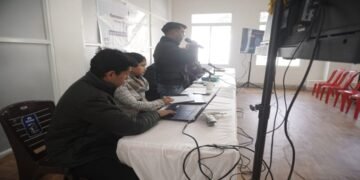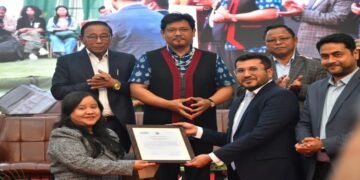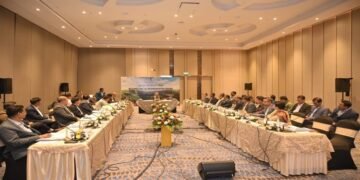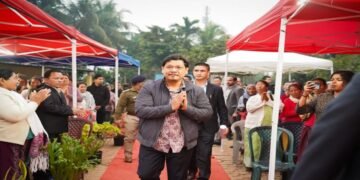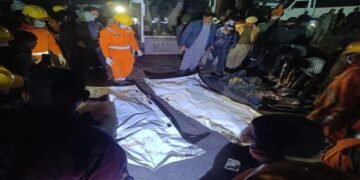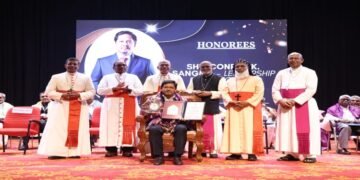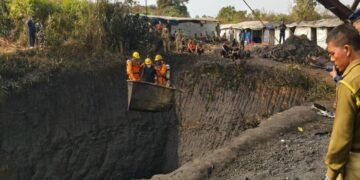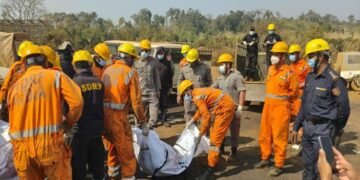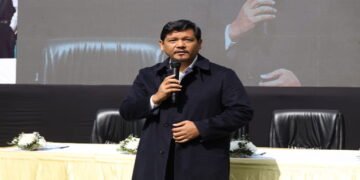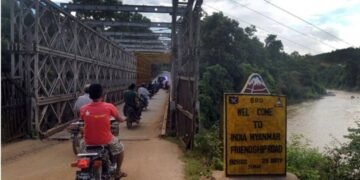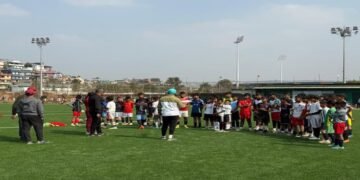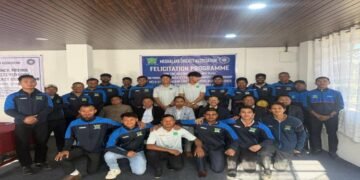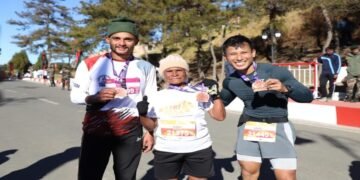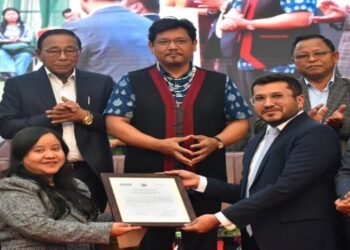Shillong (Meghalaya), Jan 12 : Chief Minister Conrad K. Sangma reiterated that the non schedule areas of the State be exempted from the purview of the Citizenship Amendment Act (CAA), while urging the centre that measures and provision are taken to protect the indigenous people of the Northeast, including Assam.
“We are thankful that the Govt of India has exempted States like Manipur, Nagaland and Arunachal Pradesh and to a large extend Meghalaya but we demand full exemption be accorded to Meghalaya, including measures taken for exemption of Assam as well,” the Chief Minister said at the 15th Annual General Conference of the Council of Nokmas at Jengjal in West Garo Hills.

Informing that Meghalaya assembly has passed a resolution for implementation of Inner Line Permit (ILP) in the State, the Chief Minister said, “We are very firm in our demand and would continue to engage with the central Government unless and until complete exemption and protection is provided to our people.”
He said that most of the Northeaster States have been provided with measures for protection, however, the State of Assam is facing challenge under the CAA and the Chief Minister demanded similar measures for protection and exemption.

Interacting with hundreds of Nokmas (Village Chief), the Chief Minister advocated that they (Nokmas) were the custodians of the society and should play a critical role in safeguarding the interest of the indigenous people.
“Government will make policies and provisions to protect the land and its people. However, our local institutions should continue to play vital role in ensuring protection at the grassroot level,” the Chief Minister added.
He urged the village chiefs not to sell their land to outsiders, who adopt unfair means to obtain land in Meghalaya, referring to cases of benami land transfers. The chief minister also suggested documentation of Nokmaship, and the lifestyle of the Garos so that the future generation will understand the importance of the Nokmas in the society.
He informed the budget provision will be made from the current financial year for construction of traditional village courts in Garo Hills. “Our Garo tribe is a society that has deep social relationship with family and is a community that shares with generosity. Though our tribe is not too large, we have a commitment to follow and implement the traditions and customs of our ancestors,” the Chief Minister said.
Talking about the importance of Nokmas and their role in the society, the Chief Minister said,
“In order for any kind of progress to occur in our State, there must be, at the grassroot (village) level, some leaders who will coordinate the exercise of rural development and create political awareness amongst the people. Each Nokma is part of the State’s good governance process. The existence of village Nokmas is a good public service practice as Nokmas also work as mediators between leaders in the Government and our people.”

He also informed that role of Nokma is vital in ensuring that community thrives through various socio-economic activities. “Our Nokma is also an example of the integrity of our community and our tribesmen and therefore play a major role in moulding and encouraging constructive public opinion, which is the essence of our dynamic democracy,” he added.
He said that the Government is working towards bridging the communication barrier between our Village Councils and the Government so that various issues faced at the village level could be addressed. “We are already in the pipeline of establishing the Tribal Research Institute, which was the vision of my late Father Shri P.A. Sangma that will act as a connecting conduit and facilitate the preservation of our tribal community whose research work will be used in policy decision making by the Government,” he said.


